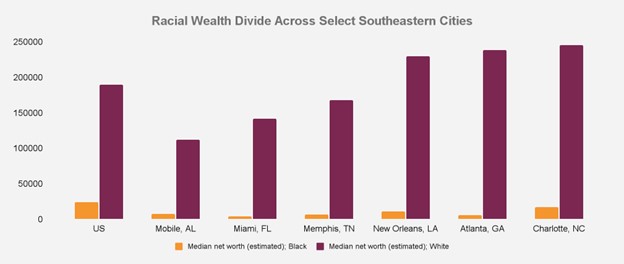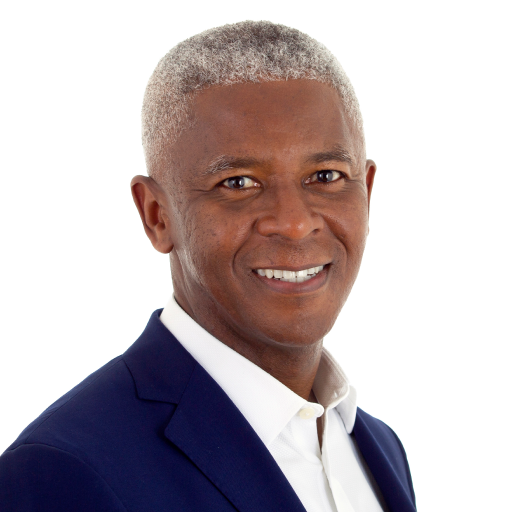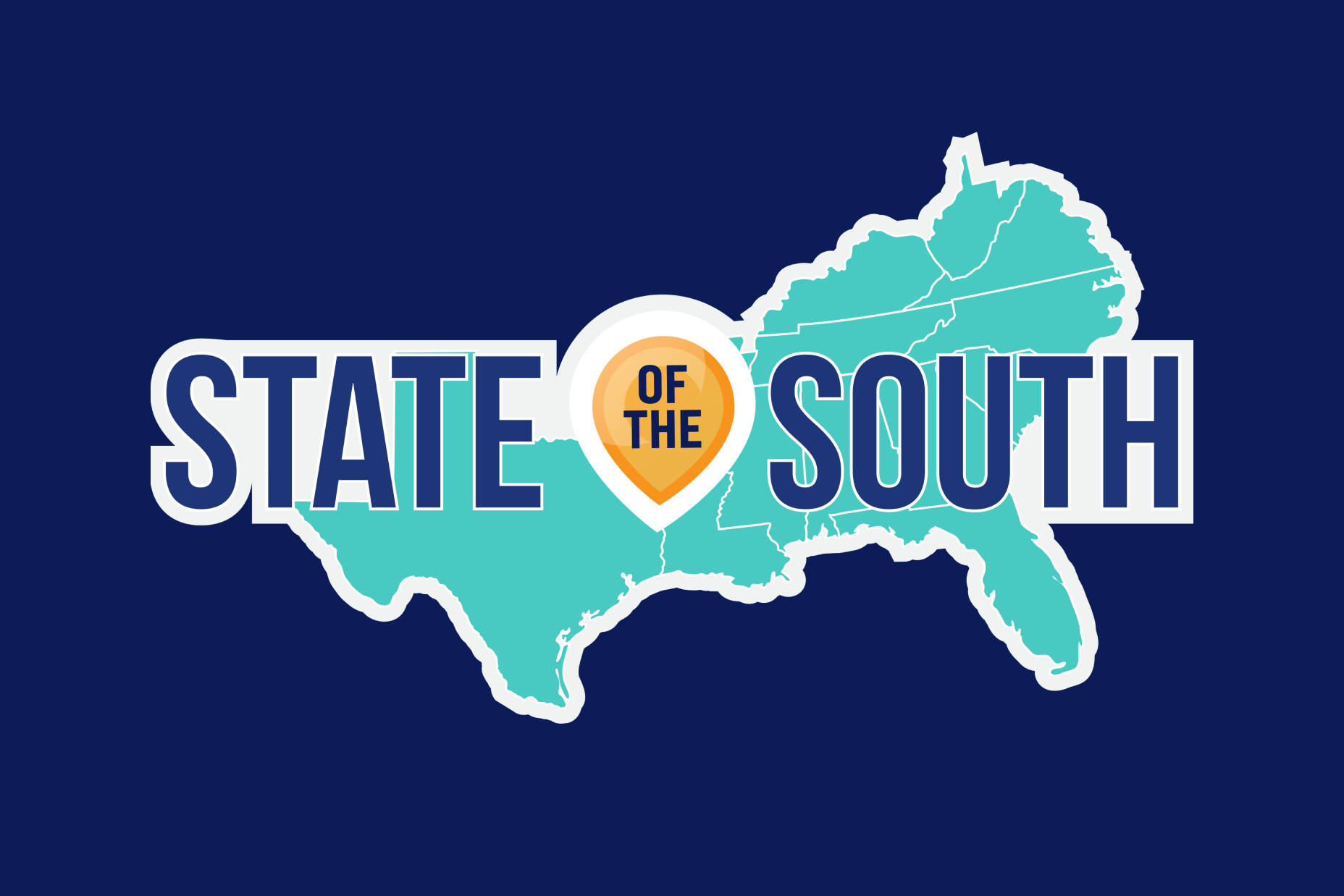Income and Wealth for All: The Foundation for a Just Economy
Nov 19, 2024
In early October 2024, MDC convened local community members, nonprofit leaders, philanthropy leaders, and artists at State of the South: Atlanta for conversations around history, legislative advocacy, and systemic inequities in the South. Over three days of discussion, we considered policy opportunities to increase equity in education, improve the social determinants of health, and close the racial wealth gap and the necessary steps to turn those opportunities into reality.
In the next edition of MDC’s State of the South report, to be released in early 2025, we’ll feature insights from our partners across the South, including some of the facilitators from our Atlanta convening. In the excerpt below, Hope Wollensack and Amit Khanduri from the Georgia Resilience and Opportunity Fund explain how public policy has created a vast and growing racial wealth gap in the South and what strategies are needed to build a just economy. Be sure to check out the full story in MDC’s State of the South report in early 2025.
“. . . The South has one of the most significant racial wealth disparities in the nation. When it comes to anti-Black economic exploitation, every region of the United States is culpable, but the South has some of the widest racial wealth divides.
The White-Black racial wealth divide has remained the same for 70 years and will likely worsen, given current trends. Across the U.S., the racial wealth divide is 6:1. The divide is even starker in many Southeastern cities. The racial wealth divides in Atlanta, Ga., Houston, Tx., and Greensboro, N.C., are 46:1, 47:1, and 87:1. This means the average White household has 46 times, 47 times, and 87 times more wealth than the average Black household, respectively. The wealth divide in these cities is as high or higher than the national racial wealth divide in 1863, just after Emancipation.
Source: Urban Institute. “Financial Health and Wealth Dashboard” (2022). Accessed October 2, 2024. https://apps.urban.org/features/financial-health-wealth-dashboard/
According to Prosperity Now’s landmark report, “The Road to Zero,” without intervention, median household wealth for Black Americans will fall to net zero by 2050. If Black wealth continues to grow at today’s rate, it will take Black families 228 years to amass the amount of wealth White families have today.
Every year, there seems to be a new statistic that confirms what impacted communities already know to be true: the economy isn’t working for them. Take Atlanta, for example. If you live in Section 8 housing in Atlanta’s Old Fourth Ward neighborhood, you don’t need to know that the racial wealth divide is 46:1 because you see the multi-million dollar homes spring up alongside your modest residence. If you’re a teenager in Atlanta’s West End neighborhood, you don’t need to be told that Atlanta is perennially among the worst cities for income inequality because selling water on the side of the road is the most lucrative job option available to you right now. And if you’re born in Bankhead, you don’t need to be reminded that your life expectancy might be 20 years higher if you were born in the neighborhood six miles away because you confront the realities of disinvestment every day.
Public policy has undermined economic opportunities for, and extracted wealth from, Black communities and directed wealth into White communities. The wealth divide has grown, even when explicitly discriminatory policies are removed, and the law has become “colorblind.” Indeed, the conditions that have created today’s racial disparities in wealth are “in the groundwater.” . . .
Income and wealth are cornerstones of a just economy
. . . Closing the racial wealth divide requires addressing the root causes of inequality. Two hallmarks of a just economy are adequate income and wealth: cash for today and capital for tomorrow. At the Georgia Resilience and Opportunity (GRO) Fund, we bring to life these two core tenets for a just economy through our guaranteed income (GI) and Baby Bonds (BB) pilot programs. GI provides regular, unrestricted cash to households, which creates an income floor to support basic needs. BB provides “investable sums” to build wealth by helping to pay for college, start a business, or purchase a home.
These programs disrupt dominant narratives about poverty, build the public’s understanding of an inclusive economy, provide dignity and choice, and are foundational policies for a more just economy. Together, they are powerful solutions for an economy where we all can thrive…”
Read the full article in the upcoming State of the South Report, coming early 2025.
Hope Wollensack is the founder and Executive Director of the Georgia Resilience & Opportunity (GRO) Fund.
Amit Khanduri serves as Director of Programs for the Georgia Resilience & Opportunity Fund, where he leads GRO’s Baby Bonds pilot program and efforts to address the racial wealth divide.







